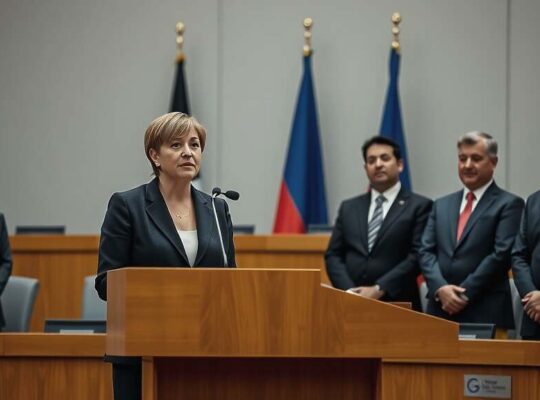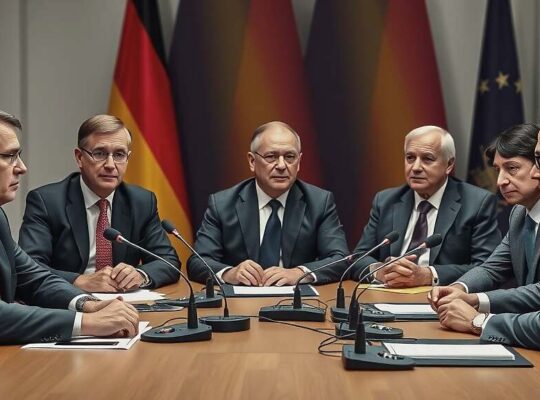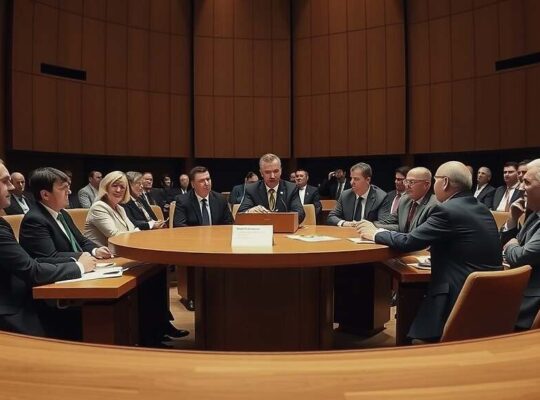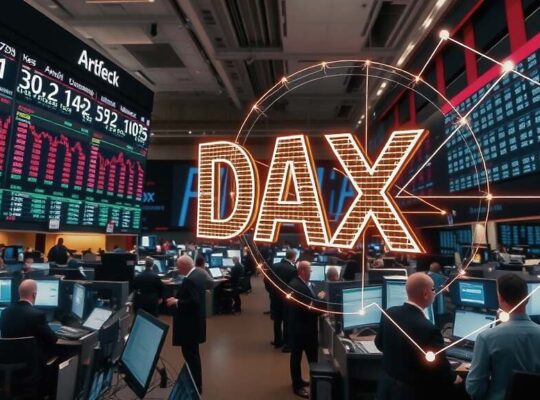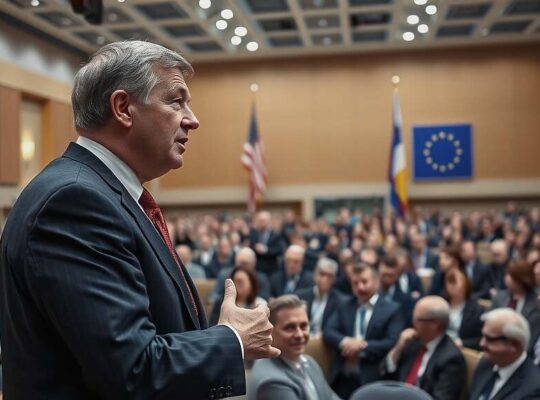Negotiations and Influence Loom Over Bundesverfassungsgericht Judge Selection
Ahead of a crucial meeting of the electoral committee, which will recommend three new judges for the Federal Constitutional Court, a prominent figure from the Left party has reiterated calls for his party to have a formal voice in the selection process. Jan van Aken, leader of the Left party, stated that his party cannot simply endorse proposals put forward by the Christian Democratic Union (CDU) without substantive dialogue. He emphasized the need for the Left party to have the right to submit its own candidates.
Van Aken argued that the CDU must engage in discussions regarding the selection of Constitutional Court judges, asserting this is a prerequisite for securing the Left party’s support for their nominees. He cautioned that a refusal to engage in dialogue could indicate a limited understanding of democratic principles.
Bundestag Vice-President Bodo Ramelow (Left party) echoed this sentiment, suggesting that a pragmatic approach necessitates collaboration. He highlighted the need for the CDU to consider its reliance on parliamentary support, implying that a return to confrontational political tactics is unrealistic.
Notably, Johannes Fechner, the legal counsel and parliamentary manager for the SPD parliamentary group, also indicated support for the Left party’s call for greater influence. He acknowledged that whilst the Left’s assertion of a right to nominate candidates is somewhat unusual, the current parliamentary landscape, without the support of the Alternative for Germany (AfD), necessitates the Left’s cooperation to secure the required two-thirds majority.
Fechner underlined the urgency of the situation, noting upcoming vacancies at the Federal Constitutional Court in Karlsruhe, requiring prompt replacements. The electoral committee is scheduled to deliver its recommendations on Monday evening, with final decisions anticipated later this week. The situation highlights the shifting dynamics of parliamentary power and the increased influence of smaller parties in critical institutional appointments.



